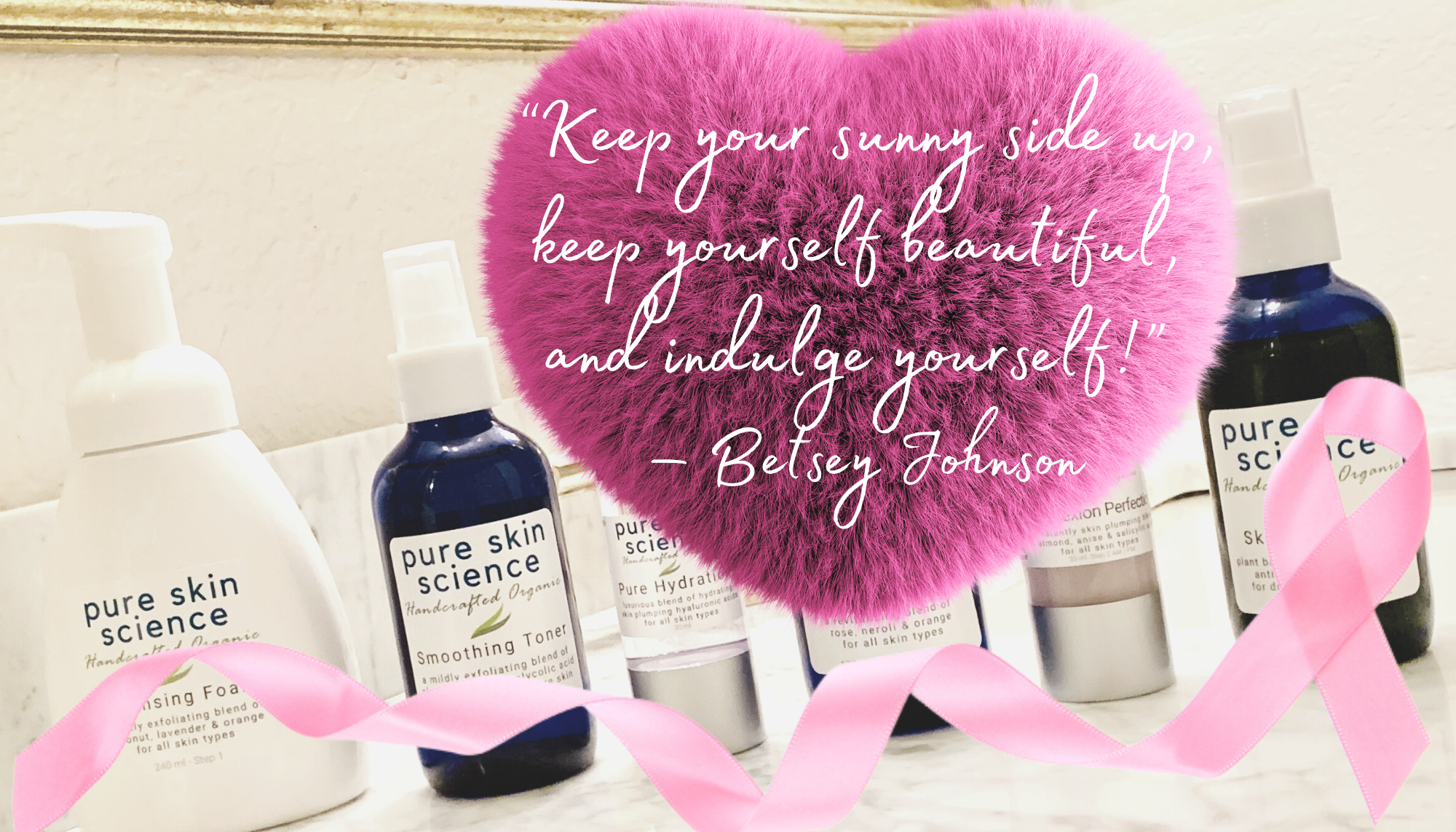
Breast Cancer Awareness Is Not Just a Month...A list of 20 carcinogenic Skin Care Ingredients
-
Parabens: Used as preservatives to extend product shelf life, they may mimic estrogen and disrupt hormone function, potentially increasing cancer risk.
-
Phthalates: Found in fragranced products to enhance scent and extend wear, some phthalates can disrupt the endocrine system, raising concerns about hormone-related cancers.
-
Formaldehyde and formaldehyde-releasing agents: Used as preservatives to prevent bacterial growth in cosmetics, formaldehyde is classified as a human carcinogen when inhaled or absorbed through the skin over extended periods.
-
Coal tar: Used in medicated shampoos and skincare products to treat skin conditions, it contains components known to be carcinogenic, posing a risk when used over time.
-
Hydroquinone: Used to lighten skin and reduce hyperpigmentation, there are concerns that long-term use may be associated with cancer risk.
-
Triclosan: An antibacterial agent commonly found in soaps and skincare products, limited evidence suggests a potential link to cancer, though further research is needed.
-
Retinyl palmitate: A form of vitamin A used in anti-aging skincare products; it may increase skin cancer risk when exposed to UV radiation.
-
BHA (Butylated Hydroxyanisole) and BHT (Butylated Hydroxytoluene): Antioxidants and preservatives used in cosmetics and skincare, there are concerns they may promote the formation of carcinogenic compounds when they interact with other substances.
-
Synthetic fragrances: Added to skincare products for scent, they may contain phthalates and other potentially harmful chemicals linked to cancer.
-
Sodium lauryl sulfate (SLS) and sodium laureth sulfate (SLES): These surfactants create lather in cleansing products but can be contaminated with 1,4-dioxane, a probable human carcinogen.
-
Talc (when contaminated with asbestos): Talc itself is not carcinogenic, but if contaminated with asbestos, it can pose a risk of asbestos-related cancers when inhaled.
-
Mineral oil and petroleum-derived ingredients: Used as emollients and moisturizers, they may be contaminated with polycyclic aromatic hydrocarbons (PAHs), some of which are known carcinogens.
-
Ethanolamines (MEA, DEA, TEA): Used as emulsifiers and pH adjusters, concerns arise from potential formation of carcinogenic compounds with prolonged exposure.
-
Oxybenzone and octinoxate: Chemical UV filters used in sunscreens, some studies suggest hormone-disrupting effects that may influence cancer risk.
-
Toluene: Found in nail polishes and hair dyes, exposure to toluene is a concern, particularly for nail salon workers.
-
Titanium dioxide nanoparticles: Used as a UV blocker in sunscreens, concerns arise from potential inhalation of nanoparticles, especially during the production of sunscreen sprays.
-
Acrylates: Found in cosmetics for their film-forming and adhesive properties, limited evidence suggests a potential risk for skin cancer with prolonged exposure.
-
Benzophenone and its derivatives: UV filters used in sunscreens and skincare products, some benzophenone derivatives have been linked to hormone disruption and potential cancer risk.
-
PEG compounds (polyethylene glycols): Used as emollients, thickeners, and solvents, concerns revolve around potential contamination with impurities like ethylene oxide and 1,4-dioxane, which can be carcinogenic.
Our thoughts and prayers go out to anyone affected.
Here at Pure Skin Science, awareness is always present, it is close to our hearts as we create our skin care products clean, pure, organic and free of potentially contributing ingredients with the following facts in mind:
- Breast cancer is the second most common cancer in women.
- 1 in 8 women suffer from breast cancer.
- 18 in 20 breast cancer tumors tested contain personal care ingredients.
- The average women applies appx. 515 toxic personal care ingredients daily to her skin.
- One big group of culprits called xenoestrogens are synthetic industrial chemicals widely used in personal care products (as well as in processed foods), referred to as “foreign estrogens” that are produced outside of the human body and have been shown to exert estrogen-like activity. While there are many more undesirable chemicals - too many to list here - xenoestrogens and phytoestrogens are worthy to be very aware of.
- Almost all traditional over-the-counter and luxury personal care products, no matter how expensive, contain potentially harmful chemicals, unfortunately even many that are labeled "certified organic", as only 70% of a product needs to be organic in order to receive an organic certification.
At Pure Skin Science we handcraft every product with integrity and love, in small batches, a gallon at a time, using clean and potent, result driven, active, healthy, biologically correct ingredients and absolutely no potentially harmful chemicals, so you can trust that nothing you apply to your skin could put you at risk!
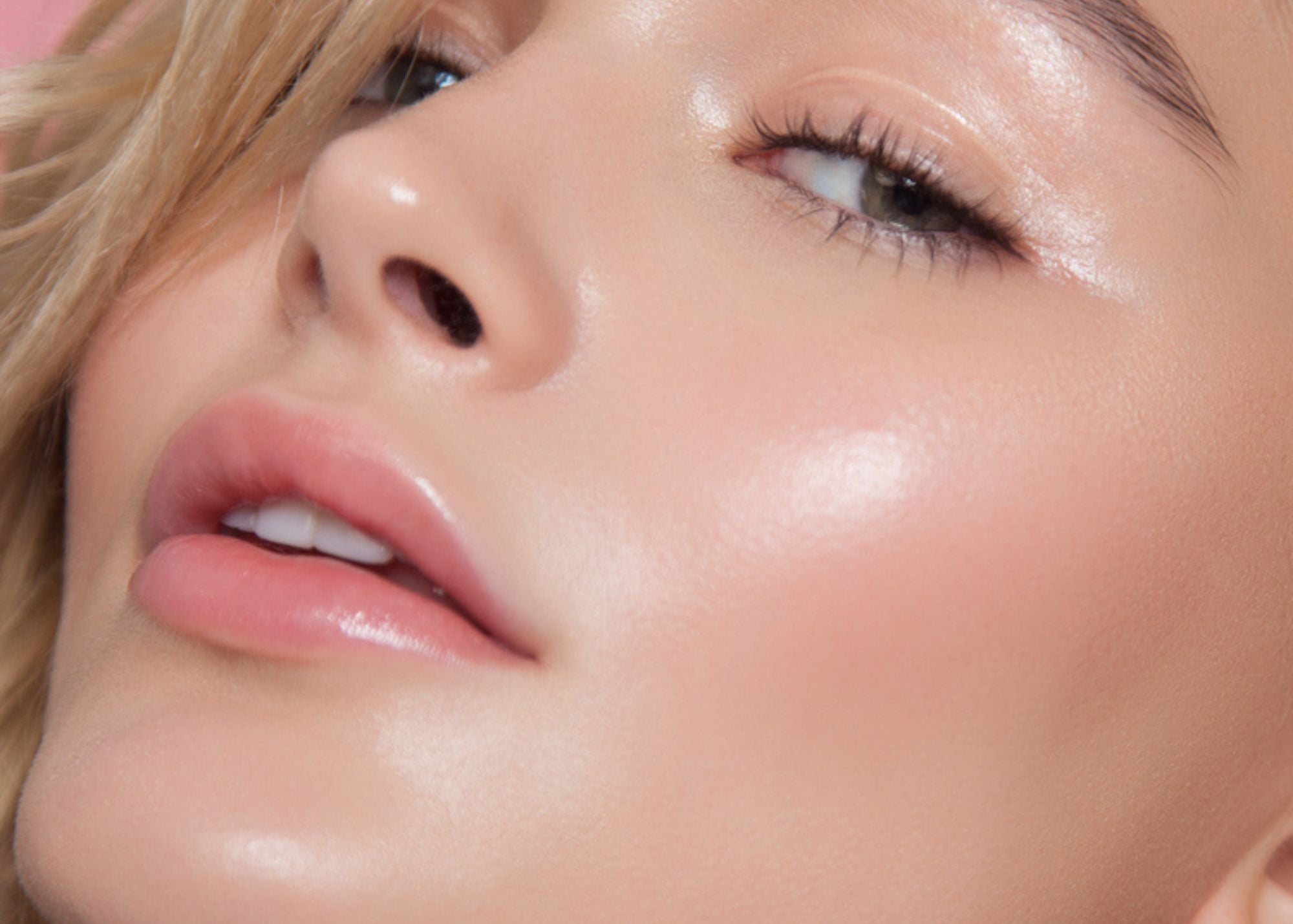
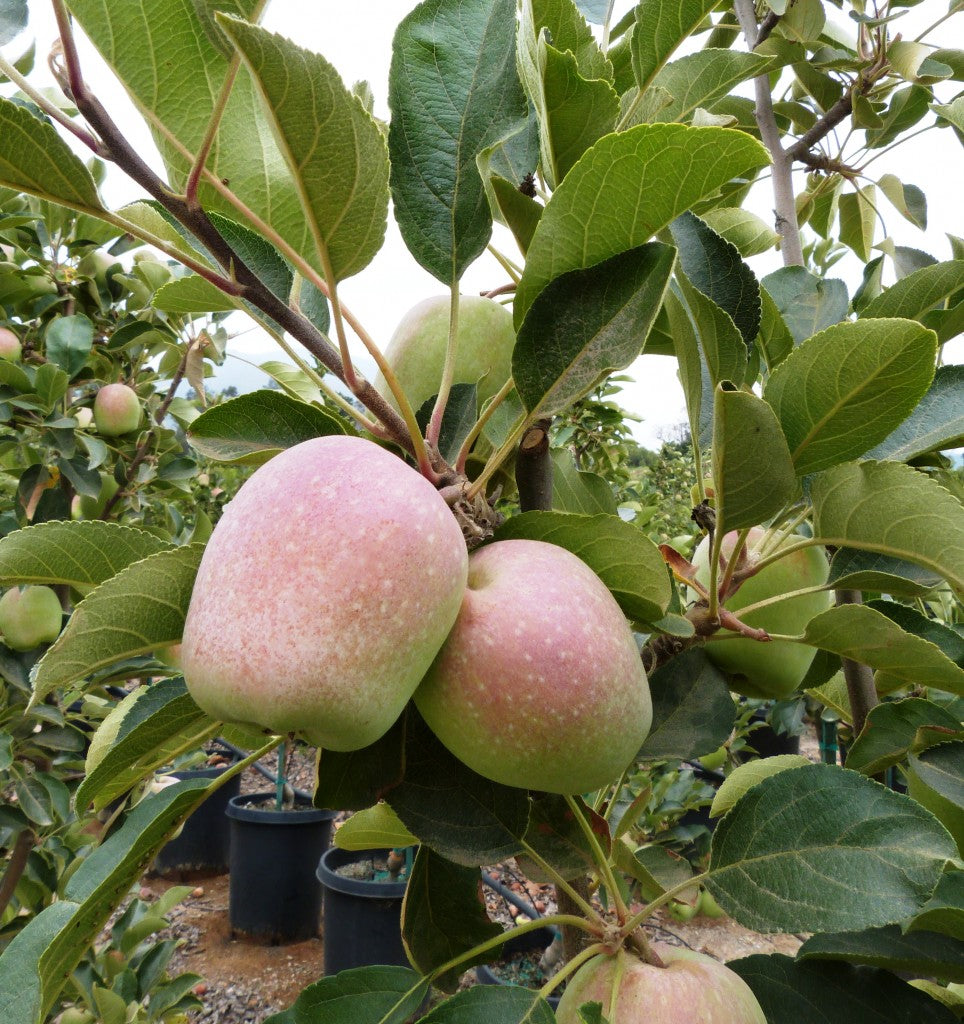
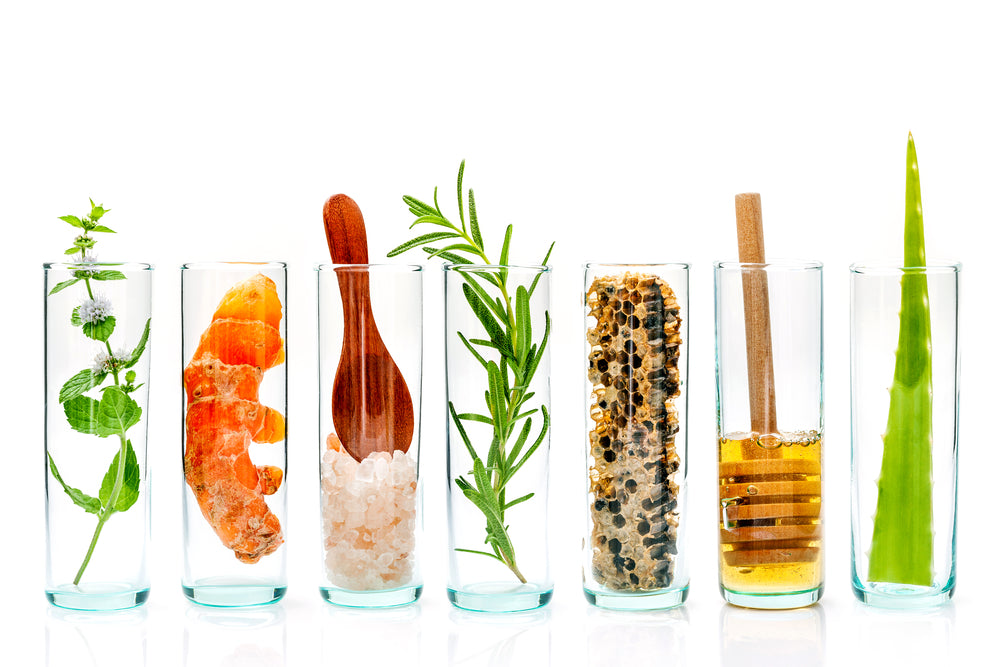
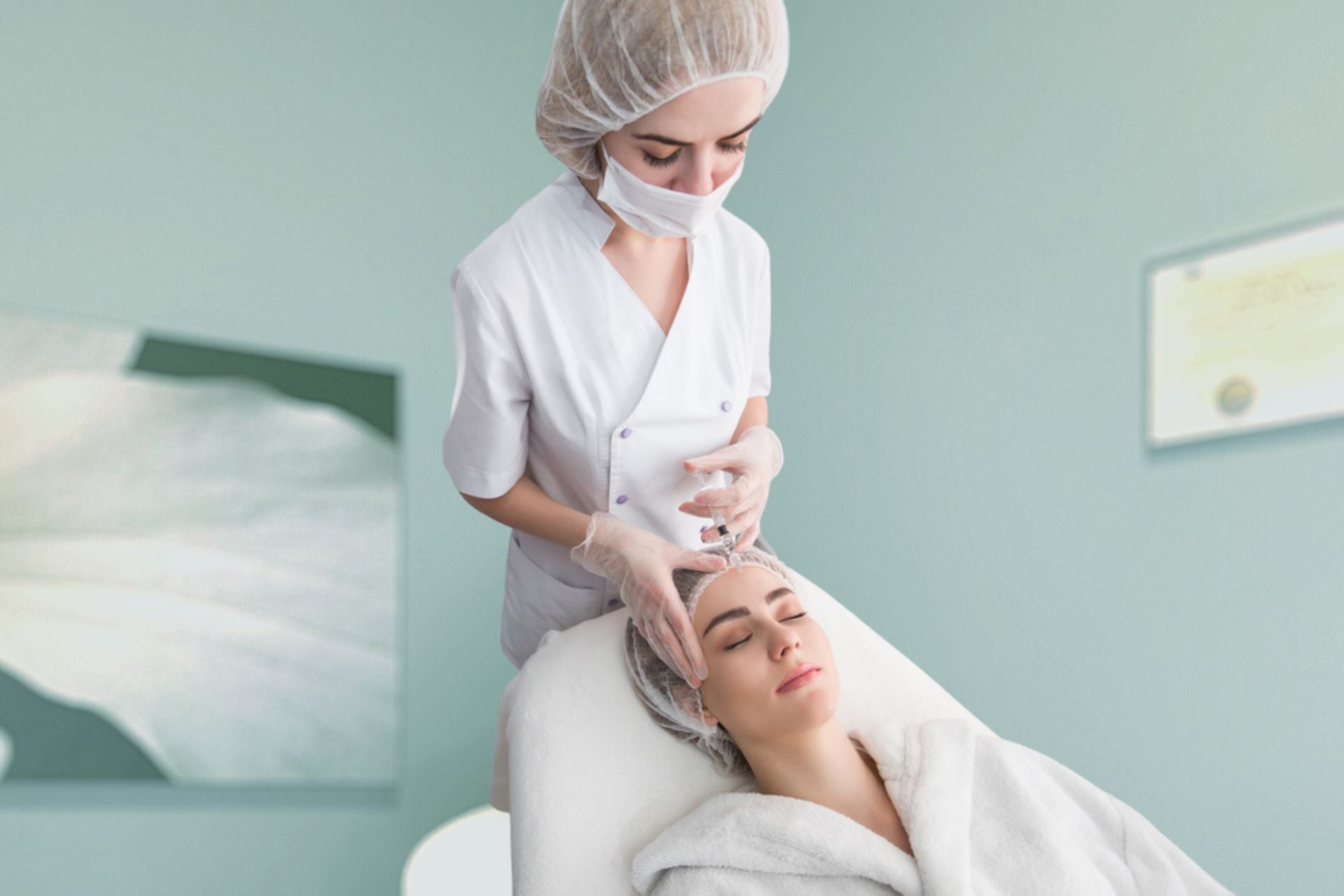
Leave a comment
This site is protected by hCaptcha and the hCaptcha Privacy Policy and Terms of Service apply.